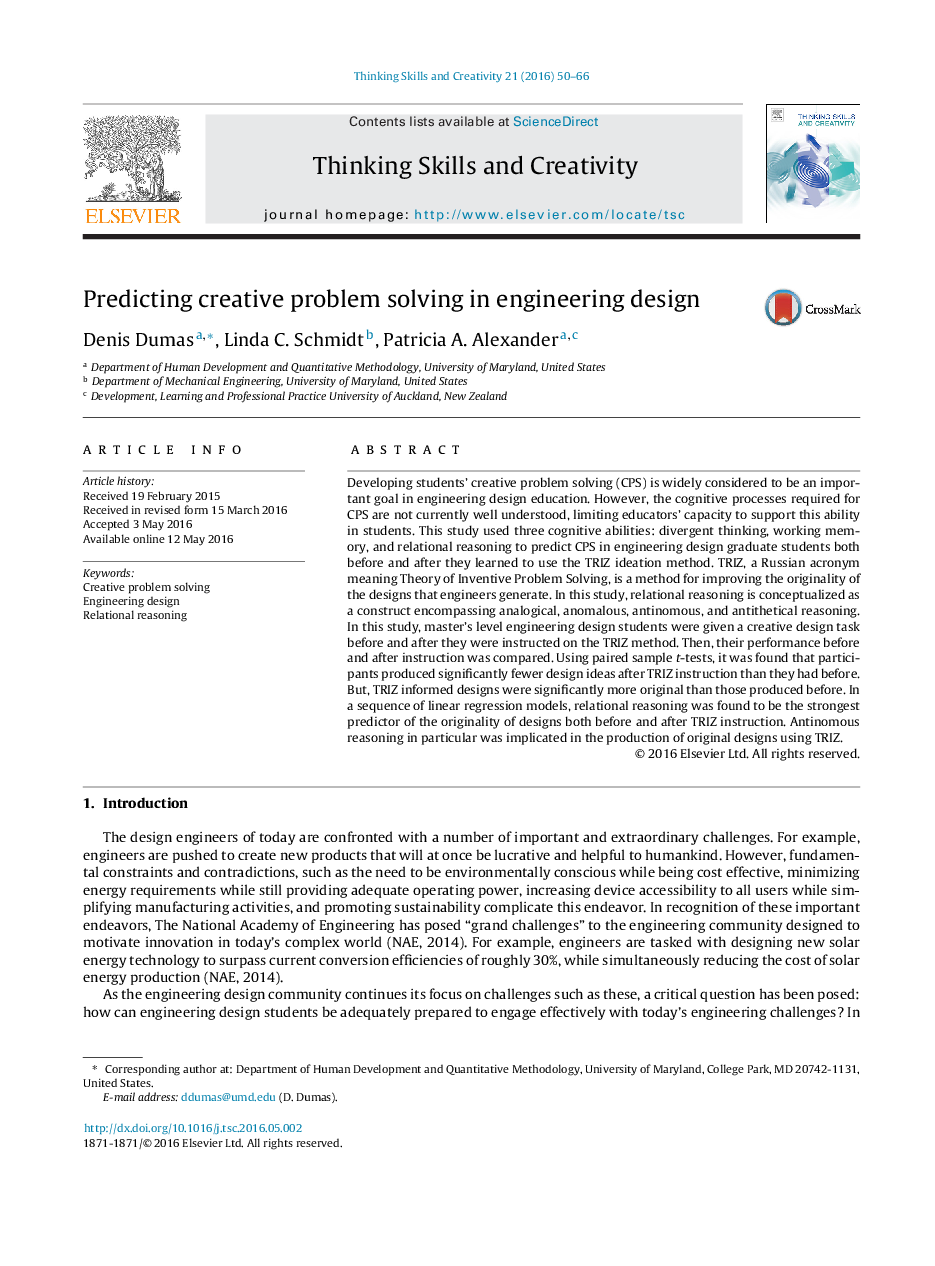| Article ID | Journal | Published Year | Pages | File Type |
|---|---|---|---|---|
| 375510 | Thinking Skills and Creativity | 2016 | 17 Pages |
•Participants produced significantly fewer design ideas after TRIZ instruction than they had before.•But, TRIZ informed designs were significantly more original than those produced before TRIZ instruction.•Relational reasoning was found to be the strongest predictor of the originality of designs both before and after TRIZ instruction.
Developing students’ creative problem solving (CPS) is widely considered to be an important goal in engineering design education. However, the cognitive processes required for CPS are not currently well understood, limiting educators’ capacity to support this ability in students. This study used three cognitive abilities: divergent thinking, working memory, and relational reasoning to predict CPS in engineering design graduate students both before and after they learned to use the TRIZ ideation method. TRIZ, a Russian acronym meaning Theory of Inventive Problem Solving, is a method for improving the originality of the designs that engineers generate. In this study, relational reasoning is conceptualized as a construct encompassing analogical, anomalous, antinomous, and antithetical reasoning. In this study, master’s level engineering design students were given a creative design task before and after they were instructed on the TRIZ method. Then, their performance before and after instruction was compared. Using paired sample t-tests, it was found that participants produced significantly fewer design ideas after TRIZ instruction than they had before. But, TRIZ informed designs were significantly more original than those produced before. In a sequence of linear regression models, relational reasoning was found to be the strongest predictor of the originality of designs both before and after TRIZ instruction. Antinomous reasoning in particular was implicated in the production of original designs using TRIZ.
